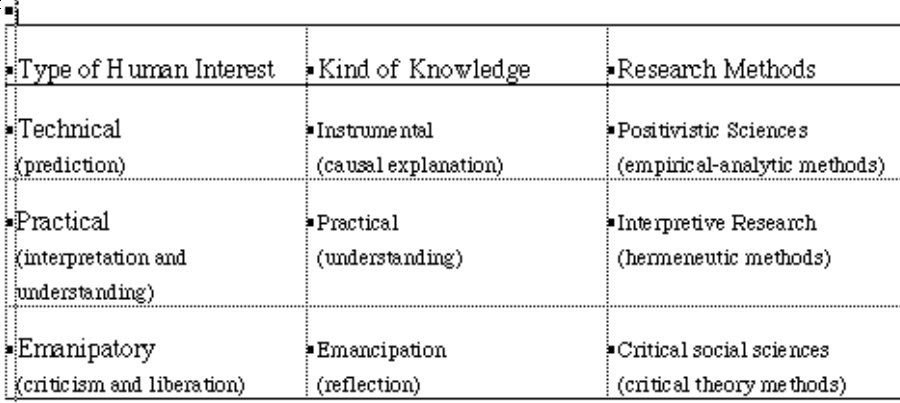Oplatka, I. (2004). The principalship in developing countries: context, characteristics and realities. Comparative Education, 40(3), 427-448.
Tag Archives: Educational management
Reading: The Critical Theory of Jurgen Habermas
Habermas’ Three Generic Domains of Human Interest:
1. Work Knowledge. Work refers to the way one controls and manipulates one’s environment. Knowledge is based upon empirical investigation and governed by technical rules. Hypothetical-deductive theories characterize this domain e.g. Physics, Chemistry and Biology.
2. Practical Knowledge. The Practical domain identifies human social interaction. Social knowledge is governed by binding consensual norms, which define reciprocal expectations about behavior between individuals. Social norms can be related to empirical or analytical propositions, but their validity is grounded ‘only in the intersubjectivity of the mutual understanding of intentions’. The historical-hermeneutic disciplines — descriptive social science, history, aesthetics, legal, ethnographic literary.
3. Emancipatory Knowledge. ‘Self-knowledge’ or self-reflection. ‘Interest in the way one’s history and biography has expressed itself in the way one sees oneself, one’s roles and social expectations. ‘ Knowledge is gained by self-emancipation through reflection leading to a transformed consciousness or ‘perspective transformation’. Examples: feminist theory, psychoanalysis and the critique of ideology.
